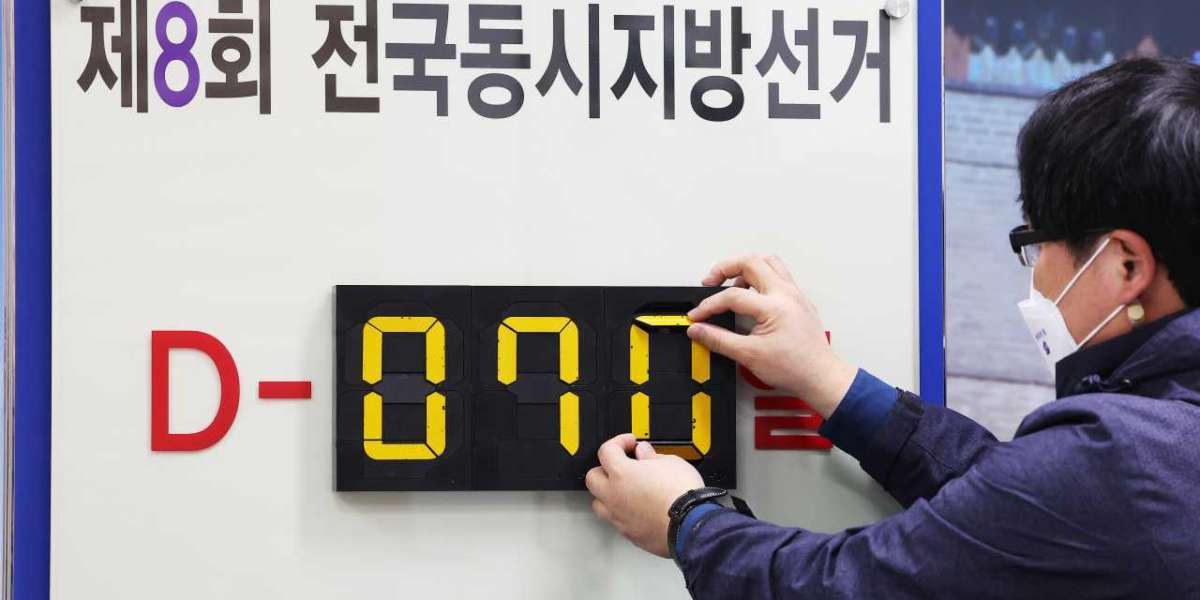As early as next week, political parties in South Korea will begin forming nominating committees for the June municipal elections, signaling the start of the country's major election campaign.
The liberal Democratic Party of Korea aims to establish an internal committee for monitoring nominations by Friday, a day after electing a new floor leader to take over for Rep. Yun Ho-jung, who is now serving as the chairman of the liberal party's interim steering committee.
The internal committee, which will be consisting of 20 appointees, will be responsible with determining where primaries will be held and who will be locked in for nomination in regions where there is little competition. Candidates and primary election timetables are expected to be determined by the middle of April, according to party officials.
It is clear from how the committee will be assembled that the Democratic Party is concentrating its efforts on the June elections. Yun previously stated to the press that at least half of the committee's 20 members will be women, while 10 percent will be in their 30s or younger and 30 percent will be appointments from outside the party, among other things.
The party hopes to demonstrate via the nomination of members to the committee that it is a political faction that appreciates inclusiveness and diversity. A bid to distinguish itself from the conservative People Power Party, which has stressed the importance of competence and aptitude rather than balanced representation in the selection of candidates for candidacy.
A number of the People Power Party's core members have already been selected to leadership positions inside the party's internal nominating committee, and the party expects to designate another 11 members to the committee by the end of the day Thursday.
A total of nine members will come from the People's Power Party, with the remaining members coming from the minor centrist People's Party, which is currently in the process of merging with the conservative party, as promised under the candidacy merger agreement reached during the most recent presidential election.
The People Power Party is bringing in its own self-made aptitude test on political and legal knowledge to test those who wish to represent the party's interests as proportional representatives in the upcoming June elections, in keeping with its pledge to value those with skills and talent over those with other characteristics.
In order to run as proportional representatives at the municipal level, candidates need to score in the top 35 percent of their respective districts, while those aspiring to run at the metropolitan or gubernatorial levels must score in the top 10 percent of their respective districts.
In addition, as the major political parties prepare to unveil their lineups and choose candidates, a number of events that are expected to occur in the future could sway voters in favor of either faction. For example, the fact that the new president is inaugurated less than a month before the election could have significant political ramifications.
It is possible that if President-elect Yoon Suk-yeol follows through on his promise to make the Cheong Wa Dae complex completely accessible to citizens when the presidential office is relocated before the election, the People Power Party would have a beneficial impact on the election results.
The party would successfully convey an image of a political faction that adheres to the promises made to voters, and it would successfully distinguish itself from the Moon Jae-in administration and the Democratic Party, both of which were frequently criticized for failing to deliver on their promises to the public.
The opening of the Cheong Wa Dae compound to the public as a free cultural venue, according to some, would also increase the People Power Party's overall appeal, so assisting it in increasing its popularity among voters, particularly those in Seoul and the surrounding areas.
If Yoon is successful in his quest for a supplementary budget, as he indicated on Tuesday, the People Power Party might see an increase in voter support as well. Yoon and his presidential transition committee are attempting to approve a 50-trillion-won additional budget to assist small company owners who have been impacted by the COVID-19 outbreak, according to reports.
However, in the legislative branch, which is dominated by the Democratic Party, the conservative party has little or no impact. Furthermore, it is uncertain how the government would put together another supplementary budget after distributing 16.9 trillion won for the same reason in February.
A majority of experts believe the People Power Party will win the municipal elections by an overwhelming margin, since they believe that whatever party wins the presidential election will likely continue its winning trend.
However, there is still a potential for the Democratic Party to produce a successful return, mostly by increasing its attractiveness to voters as a party that follows through on its promises. As the presidential election approaches, it will be under more pressure to successfully implement the political changes that its MPs have pledged to seek.
At the time, the party's legislators stated that the party would work to pass legislation prohibiting the formation of satellite political parties, instituting a runoff election system, and changing the current single five-year term limit for the presidency to a dual four-year term limit, similar to the United States.
Not all of the promises outlined in the announcement will be achievable, but simply making progress and demonstrating to voters that the Democratic Party is serious about fulfilling its promises could help the party make a dent in the local elections, which are widely expected to result in a landslide victory for the People Power Party.



